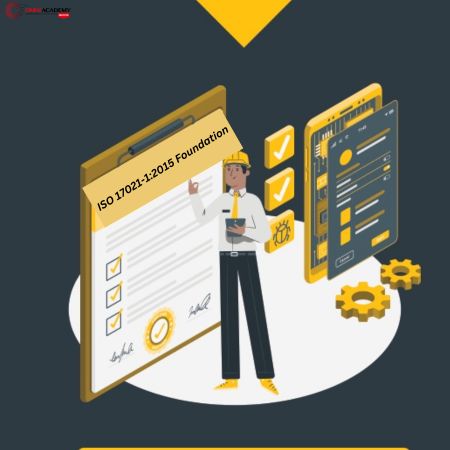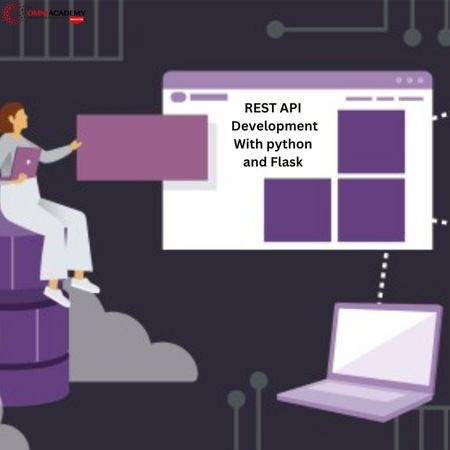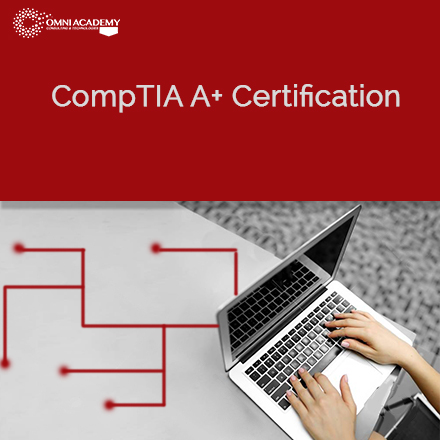AI with Python Advanced Course
Have you ever wondered how Artificial Intelligence actually works? Do you want to be able to harness the power of neural networks and reinforcement learning to create intelligent agents that can solve tasks with human level complexity?
This is the ultimate course online for learning how to use Python to harness the power of Neural Networks to create Artificially Intelligent agents!
This course focuses on a practical approach that puts you in the driver’s seat to actually build and create intelligent agents, instead of just showing you small toy examples like many other online courses. Here we focus on giving you the power to apply artificial intelligence to your own problems, environments, and situations, not just those included in a niche library!
What you’ll learn
- Reinforcement Learning with Python
- Creating Artificial Neural Networks with TensorFlow
- Using TensorFlow to create Convolution Neural Networks for Images
- Using OpenAI to work with built-in game environments
-
Using OpenAI to create your own environments for any problem
-
Create Artificially Intelligent Agents
-
Tabular Q-Learning State–action–reward–state–action (SARSA)
-
Deep Q-Learning (DQN)
-
DQN using Convolutional Neural Networks
-
Cross Entropy Method for Reinforcement Learning
-
Double DQN
-
Dueling DQ
Course Content
Module1: Course Overview:
- Welcome Message
- Course Curriculum Overview
- Course Success and Overview
Module2: Set-up & Installation Procedures
- Anaconda and Jupyter Notebook Install and Setup
- Note on Environment Setup
- Environment Setup Walkthrough
-
Introduction to Numpy Section
-
NumPy Arrays
-
Numpy Operations – Part One
-
Numpy Operations – Part Two
-
Numpy Exercise Overview
-
Numpy Exercise Solutions
Module4: Matplotlib & Vistualization Overview
- Introduction to Matplotlib
- Matplotlib Basics
- Matplotlib – Understanding the Figure Object
- Matplotlib – Implementing Figures and Axes
- Matplotlib – Figure Parameter
- Matplotlib – Subplots Functionality19:17
- Matplotlib Styling – Legends
Module5: Machine Learning, Deep Learning, & Reinforcement Learning
- What is Machine Learning, Deep Learning, and Artificial Intelligence?
- Supervised Machine Learning Process
Module6: Pandas and Scikit-Learn Overview
- Pandas and Scikit-Learn Overview
- Pandas – Series Part One
- Pandas – Series Part Two
- Pandas – DataFrames – Part One
- Pandas – DataFrames – Part Two
- Pandas – DataFrames – Part Three
- Pandas – DataFrames – Part Four
- Scikit-Learn – Using Train-Test-Split
- Scikit-Learn – Using Metrics
Module7: Artificial Neural Network & TensorFlow Basics
- Perceptron Model
- Neural Networks
- Activation Functions
- Multi-Class Classification Considerations
- Cost Functions and Gradient Descent
- Backpropagation
- TensorFlow vs. Keras Explained
- Keras Syntax – Preparing the Data
- Keras Syntax – Creating and Training the Model
- Keras Syntax – Model Evaluation
- Keras Regression – Exploratory Data Analysis
- Keras Regression – EDA Continued
- Keras Regression – Data Preprocessing and Model Creation
- Keras Regression – Model Evaluation and Predictions
- Keras Classification – EDA and Preprocessing
- Keras Classification – Overfitting and Evaluation
- Keras Classification – Overview of Project Options
- Keras Project Notebook Exercise Overview
- Keras Project Solution – Exploratoy Data Analysis
- Keras Project Solutions – Missing Data – Part One
- Keras Project Solutions – Dealing with Missing Data – Part Two
- Keras Project Solutions – Categorical Data
- Keras Project Solutions – Data Preprocessing
- Keras Project Solutions- Creating and Training the Model
- Keras Project Solutions – Model Evaluation
- Tensorboard
- Convolutional Neural Networks Section Overview
- Image Filters and Kernels
- Convolutional Layers
- Pooling Layers
- MNIST Data Set Overview
- CNN on MNIST – The Data
- CNN on MNIST – Creating and Training the Model
- CNN on MNIST – Model Evaluation
- CNN on CIFAR-10 – The Data
- CNN on CIFAR-10 – Evaluating the Model
- Downloading Data Set for Real Image Lectures
- CNN on Real Image Files – Reading in the Data
- CNN on Real Image Files – Data Generation
- CNN on Real Image Files – Creating the Model
- CNN on Real Image Files – Model Evaluation
- CNN Exercise Project Overview
- CNN Exercise Project Solutions
- Overview of Core Concepts for Reinforcement Learning Section
- Agents, Environments, and Policy
- Rewards, Discount Factors, and Bellman Equation
- Deterministic vs. Stochastic Processes
- Tabular Reinforcement Learning
- Introduction to OpenAI Gym Section
- OpenAI Overview and History
- OpenAI Gym – Documentation Tour
- OpenAI Gym – Environment Key Ideas
- OpenAI Gym – Working with the Environment
- OpenAI Gym – Agent Interacting with the Environment
Module11: Classical Q-Learning
- Introduction to Classical Q-Learning Overview
- History of Q-Learning
- Q-Learning Theory – Part One – Table Intuition
- Q-Learning Theory – Part Two – Q Target Equation
- Q-Learning Theory – Part Three – Q-Update Equation
- Q-Learning Theory – Part Four – Programmatic Q Updates
- Q-Learning Implementation – Part One – Environment Setup
- Q-Learning Implementation – Part Two – Table and Hyperparameters
- Q-Learning Implementation – Part Three – Update Functions
- Q-Learning Implementation – Part Four – Agent Training
- Q-Learning Implementation – Part Five – Visualization and Utilization
- Continuous Q-Learning Theory – Part One – Environment Setup
- Continuous Q-Learning Theory – Part Two- Q-Table Shape
- Continuous Q-Learning Theory – Part Three – Discretization Theory
- Continuous Q-Learning – Part Four – Discretization Implementation
- Continuous Q-Learning – Part Five – Functions and Hyperparameters
- Continuous Q-Learning – Part Six – Training and Usage
- Q-Learning Exercise Project
- Q-Learning Exercise Project – Solutions
Module 12: Deep Q Learning
- DQN Section Overview
- History of DQN
- DQN Theory and Intuition – Part One – Review of Core RL Ideas
- DQN Theory and Intuition – Part Two – Neural Networks for RL10:50
- DQN Theory and Intuition – Part Three – Feedback and Function Approximation
- DQN Theory and Intuition – Part Four – Experience Replay
- DQN Theory and Intuition – Part Five – Mapping Key Ideas to Code
- DQN Manual Implementation – Part One – Imports and Environment
- DQN Manual Implementation – Part Two – Artificial Neural Network
- DQN Manual Implementation – Part Three – Hyperparameters and Functions
- DQN Manual Implementation – Part Four – Model Training
- DQN – Keras-RL2 – Part One – Overview
- DQN – Keras-RL2 – Part Two – Imports and Environment
- DQN – Keras-RL2 – Part Three – Creating the ANN
- DQN – Keras-RL2 – Part Four – DQN Agent
- DQN – Exercise Overview
- DQN – Exercise Solutions
- Introduction to Deep Q-Learning on Images
- Files for DQN on Images
- Key Image Concepts Review
- Image History in Replay Buffer – Concept Review
- Processing Images Part Three- Coding Replay Buffer and Sequences
- Processing Images Part Four – Coding Preprocessing
- DQN on Images – Part One – Imports and Processing
- DQN on Images – Part Two – Constructing the Network
- DQN on Images – Part Three – Setting up the Agent
- DQN Exercises Overview
- DQN Exercises Solution
Module14: Creating Custom OpenAI Gym Environments
- Introduction to Custom OpenAI Gym Environments
- Custom Gym Environments – Class Structure Overview
- Creating Custom Game – Part One – Snake Game Overview
- Creating Custom Game – Part two – Class Structure and Setup
- Creating Custom Game – Part Three – Game Reset
- Creating Custom Game – Part Four – Direction and Movement
- Creating Custom Game – Part Five – Eating and Spawning Food
- Creating Custom Game – Part Six – Human Input
- Creating Custom Game – Part Seven – Displaying Scor
- Creating Custom Game – Part Eight – Game Over Conditions
- Creating Custom Game – Part Nine – Ending the Game
- Creating Custom Game – Part Ten – Play Logic
- Important Note on __init__.py Files
- OpenAI Gym Environment – Directory Structure Overview
- Gym Directory and Setup File
- Filling in the __init__.py Files
- Conversion of Game to OpenAI Gym Environment Class
- Conversion of Game to OpenAI Gym Environment – Part Two
- Registration of the Environment
- Training an Agent on the Custom Environment
Who this course is for:
- Python developers familiar with basics of machine learning, such as Scikit-Learn, but now want to learn how to create Artificially Intelligent Agents through Reinforcement Learning
International Student Fess: 300 US$
Job Interview Preparation (Soft Skills Questions & Answers)
- Tough Open-Ended Job Interview Questions
- What to Wear for Best Job Interview Attire
- Job Interview Question- What are You Passionate About?
- How to Prepare for a Job Promotion Interview
🎥 Your FREE eLEARNING Courses (Click Here)
Internships, Freelance and Full-Time Work opportunities
Flexible Class Options
- Week End Classes For Professionals SAT | SUN
- Corporate Group Trainings Available
- Online Classes – Live Virtual Class (L.V.C), Online Training
Related Course
Chat GPT Introduction With Python
Open AI API, Chat GPT With Python
REST API Development With Python and Flask
Full Stack Web Development With Python Django Machine Learning And AI
Diploma in Python -Web Development,Flask , AI, Machine Learning and Data Science






